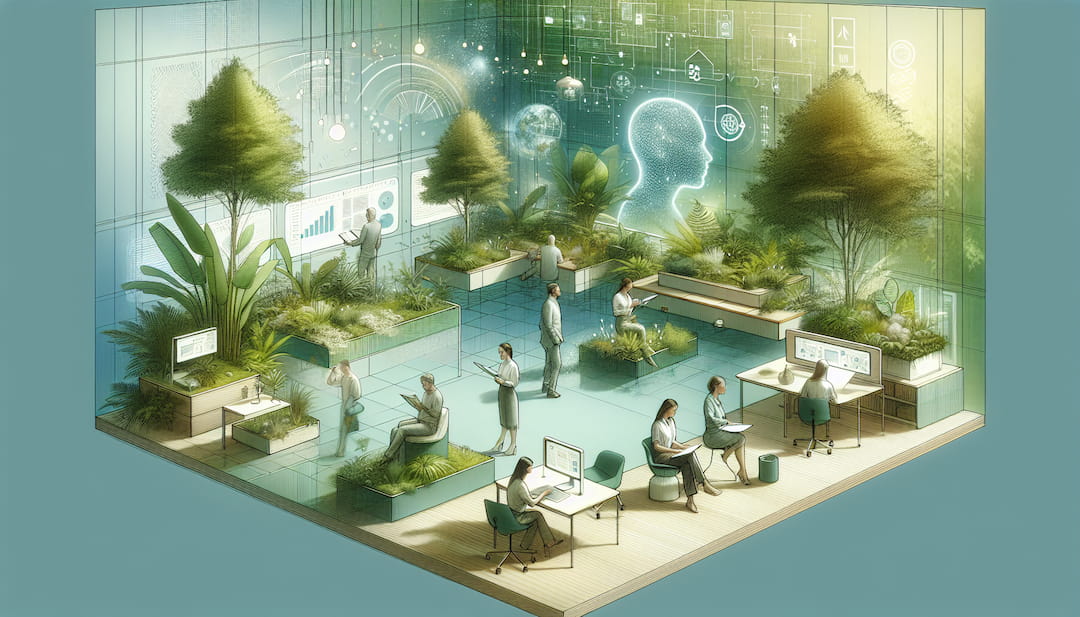Mental Health & the Future Workplace: Navigating Tomorrow's Challenges

Introduction to Mental Health in the Workplace
In recent years, there has been an increasing recognition of the importance of mental health in the workplace. As societies continue to grapple with the complexities of modern life, mental health issues are on the rise, making it more critical than ever for employers to address this component of employee well-being. With rapid changes in technology, economic pressures, and evolving work-life balances, tomorrow's workplace faces an immense challenge in dealing with mental health issues. Understanding these challenges is the first step toward navigating through them effectively.
The Evolving Nature of Work-related Stress
Work-related stress has significantly evolved, transcending the traditional office space. The digitalization of the workplace has brought new stressors, such as the expectation of constant availability and the blurred lines between work and personal life. The future workplace must recognize and mitigate these emerging sources of stress to maintain a healthy workforce. Adapting to these changes will entail creating more flexible work arrangements, fostering a culture that values work-life balance, and equipping employees with strategies to manage digital stressors.
Role of Technology in Mental Health Management
As technology continues to advance, it offers a dual-edged sword. On the one hand, technological innovations can contribute to increased workplace stress, but on the other hand, they also present novel opportunities for promoting well-being. Companies are now equipped with tools such as mental health apps, online therapy sessions, and virtual reality stress management programs that can seamlessly integrate into the employee's day. The future workplace must harness these technologies to support mental health proactively rather than reactively.
The Importance of Emotional Intelligence and Empathy
The future workplace is not just about technological advances but also about the human touch. Emotional intelligence and empathy are becoming essential skills for managers and coworkers alike. The ability to understand and respond to the emotional needs of others contributes significantly to a supportive work environment. Training programs to enhance these skills can lead to better team dynamics, reduced conflicts, and a better understanding of workplace culture.
Destigmatizing Mental Health Issues
One of the most significant barriers to mental health wellness in the workplace is the stigma associated with it. Employees may fear judgment or repercussions if they discuss their mental health challenges openly. Eradicating this stigma is crucial. Future workplaces will need to foster an atmosphere where speaking about mental health is as normalized as talking about physical health. This involves leading by example, enforcing anti-discrimination policies, and providing platforms where employees can share and seek support without fear.
Preventive Measures and Resilience Building
To manage mental health in the workplace effectively, preventive measures must be prioritized. Creating an environment that promotes resilience can help employees withstand and recover from stress. This includes providing resources for physical health, encouraging regular breaks, and ensuring the workload is manageable. Workshops on stress management and resilience techniques can also equip employees with the personal skills they need to navigate the challenges of work and personal life.
Conclusion: Embracing a Holistic Approach
Navigating the future challenges of mental health in the workplace requires a holistic approach combining technology and humanity. Employers must cultivate an environment that supports employees' mental well-being through resources and policies and normalizes the conversation around mental health. By prioritizing emotional intelligence, promoting empathy, and providing tools to manage stress, the workplace of tomorrow can support the professional and personal growth of its workforce. As our work environments evolve, it is imperative to ensure that mental wellness remains a core element of workplace culture.




